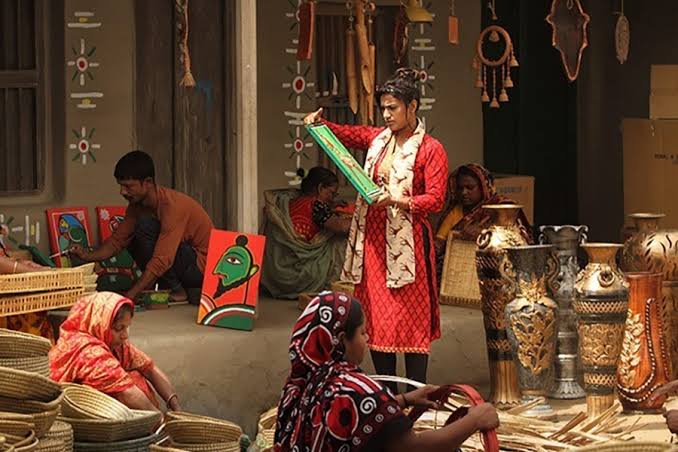
Published :
Updated :

The rise of startups within the cottage, micro, small, and medium enterprise (CMSME) sector has been a bright spot for the economy in recent years. This CMSME sector remains the backbone of economic growth and job creation as it accounts for roughly 30 per cent of the country's GDP and employs nearly 85 per cent of its industrial workforce. What's worrying, however, is that a concerning number of new businesses in this industry don't make it past their first year or two in operation. There is a clear gap between the sector's promise and performance as a result of this high rate of attrition, which prevents the sector from reaching its full potential. This fragility lays bare the unique challenges that startups in the country must grapple with.
One major obstacle that causes many CMSMEs to fail early is their inability to identify and reach target markets. Far too often, entrepreneurs rely on outdated, word-of-mouth promotion while neglecting the potential of digital tools. Many also lack a firm grasp of key business fundamentals such as branding, pricing strategies, consumer behaviour and effective packaging design. In an increasingly competitive market, this limits their reach and customer engagement. Moreover, insufficient budgets for advertising and promotion further marginalise their products in both domestic and international markets. While the SME Foundation has made commendable efforts by organising fairs and facilitating participation in international trade exhibitions, these initiatives simply aren't enough to address the deeper structural gaps in entrepreneurial capacity and market knowledge. Even the most innovative ventures will struggle to evolve into sustainable enterprises when they lack strong connections to the market.
Another significant challenge is the absence of tailored institutional support and policy frameworks. In a labour-intensive economy like Bangladesh's where formal employment opportunities are scarce, strengthening CMSMEs can drive inclusive growth, reduce poverty and enhance women's economic participation, especially as women represent 6.47 per cent of SME entrepreneurs. However, these businesses are often left to weather the storms of market competition without adequate support. Institutional training in business skills, marketing and customer engagement is notably absent. Moreover, the existing Competition Commission has done little to curb the dominance of large enterprises, further weakening CMSME competitiveness. Some government initiatives such as refinancing schemes and credit guarantees show promise but their full impact is yet to be realised. For example, the disbursement of stimulus packages has fallen short of targets in later phases and the sector's overall contribution to GDP remains stagnant compared to some neighbouring countries. This suggests a notable disparity between policy objectives and their execution on the ground.
To reverse the tide of early business failures and boost growth, the government must attend to the issues that held back CMSME sector from thriving. Entrepreneurs need continuous, practical training in core business skills, tailored to industry needs and delivered through accessible platforms like online courses and community workshops. Policy support must also be streamlined to ease access to raw materials and strengthen market linkages at the grassroots level. As proposed by industry leaders, establishing dedicated SME product exhibition centres would create vital spaces for showcasing products and direct interaction with buyers. Furthermore, effective enforcement of the Competition Law 2012 and strengthening the Competition Commission are crucial to ensure a level playing field and prevent large industrial groups from crowding out smaller enterprises. With the right support in market research, branding and digital integration, it is possible for the country to create an enabling ecosystem that will transform its CMSME industry into a lasting driver of employment and growth.


 For all latest news, follow The Financial Express Google News channel.
For all latest news, follow The Financial Express Google News channel.